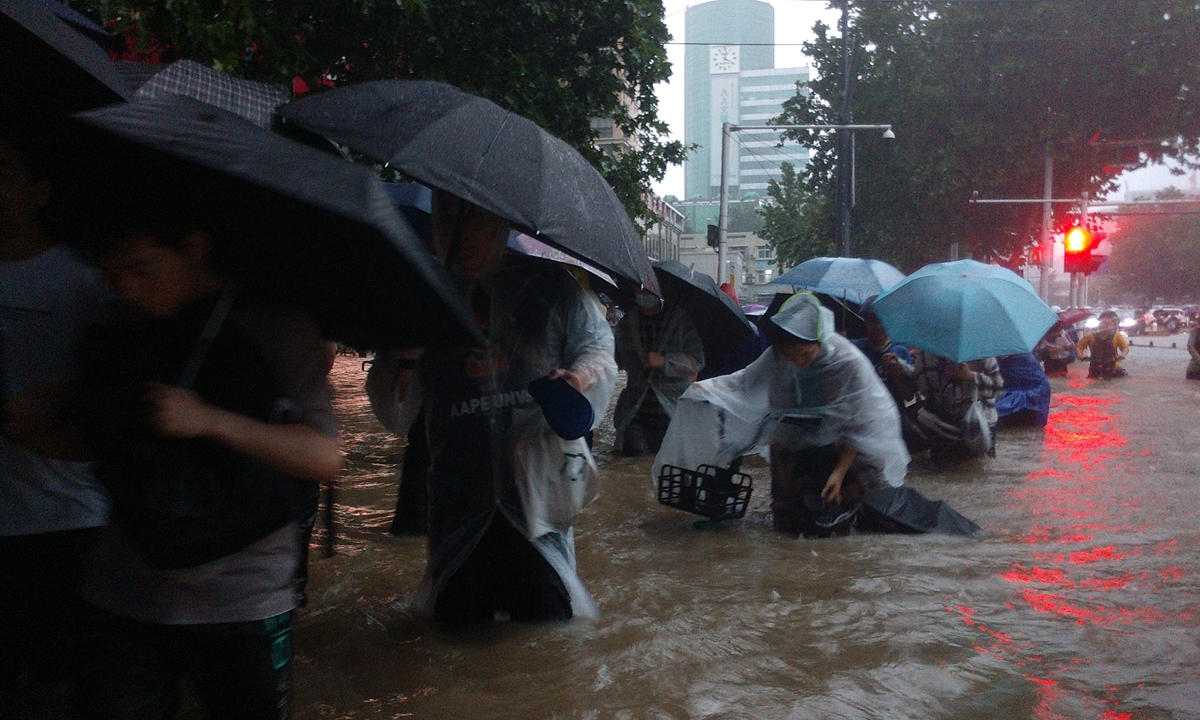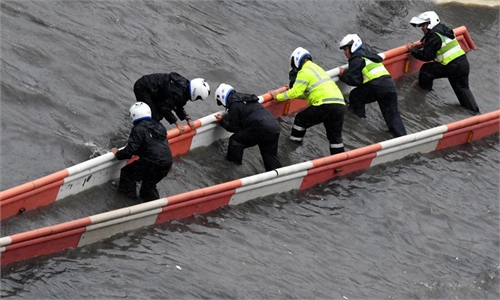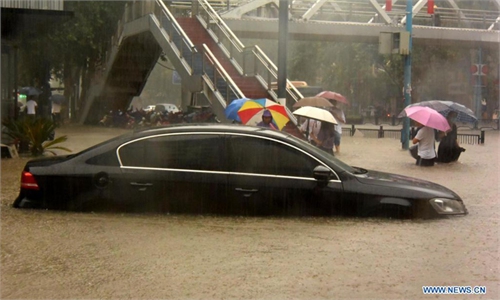Henan floods should lead to better extreme weather response: Global Times editorial

Zhengzhou photo:IC
The heavy rainfall in Central China's Henan Province has once again shocked the Chinese people's previous understanding of meteorological disasters and pushed us to rethink how to prevent such disasters from causing tragic consequences.First, the intensity of the weather disaster exceeds our previous experience. For example, this time, the extremely strong rainfall in Zhengzhou, the capital city of Henan Province, with over 200 mm of precipitation in an hour, was beyond imagination. From tornadoes in northern China to the torrential rain in Henan, these disasters are telling us that extreme weather and its intensity are increasing significantly. In the future we can no longer use vague phrases, such as "once in a thousand years" or "once in a hundred years," to guide the fight against disasters. We must be ready to encounter and contend with catastrophic weather more often.
It is not realistic to have our cities, as well as the rural areas, build the infrastructure that can effectively cope with heavy rainfall like in Zhengzhou in the past few days. It was absolutely impossible to keep Zhengzhou from flooding on Tuesday. Such a standard in the fight against disasters means unaffordable costs, and our cities are unlikely to take that extreme safety route.
However, we should seriously consider and implement measures, including enhancing cities' drainage so that they can provide valuable time for deployment and response for urban disaster relief in emergency situations.
We need to set a target for extreme disaster resistance: the most important thing under such a situation is to reduce or even avoid deaths. In other words, we cannot build super infrastructure for every city to get prepared for a so-called "once in a thousand years" flood. However, we must build the real ability of danger avoidance for every city, village, and town when facing meteorological disasters.
Situations around the world have repeatedly proven that despite human beings' continuous advancement in science and technology, nature is still the most powerful. Human beings cannot build a completely safe city. The most fundamental guarantee on disaster resistance lies in human beings' wisdom and measures to fight nature based on the increasingly solid infrastructure. After all, extreme meteorological disasters are of low probability, and it is difficult to avoid unexpected situations. However, our preparations should be able to quickly coordinate with the emergency response at critical moments, to jointly make up for the risks caused by unexpected situations, and reach the goal of reducing or even eliminating deaths.
For this reason, Chinese society needs to pay more for preventive response to early warnings for meteorological disasters. Such a cost is not too large when it is split into different areas, yet it can effectively reduce the probability of major human and property losses caused by meteorological disasters. This is worthwhile from the perspective of society. For this reason, all cities and towns should form relatively consistent standards for precautionary preparations.
It is also vital to ensure correct command in emergencies. Society should form a high degree of consensus to follow the command and fight floods at critical moments. There must be no hesitation or delay when evacuation and flood diversion are required. The implementation must be resolute and effective. Public opinion should support such an anti-disaster order.
It was reported that the floods had caused 25 deaths and 7 missing in Henan this time. This is the first human toll from the province since the floods began. The final deaths in the province will be a key indicator of the effectiveness of disaster relief.
Henan fought a huge battle this time. The People's Liberation Army and People's Armed Police Force were quickly mobilized and deployed to the most dangerous areas, and measures including flood diversions were used in time to effectively reduce some disaster risks. But the biggest loss of life took place in the Zhengzhou subway. China's Ministry of Transportation has already asked local authorities to learn from the lessons of the incident.
As the disaster-relief work continues in Henan, there is strong support for the province, the birthplace of Chinese civilization, to respond fully to the disaster. We hope that no new deaths will occur when the first wave of the disaster passes. It is believed that Henan's resilience to the floods has been quickly developed in the fast-paced disaster response and will not fail to meet public expectations.
Stay safe, Henan! Stay strong, Henan!


